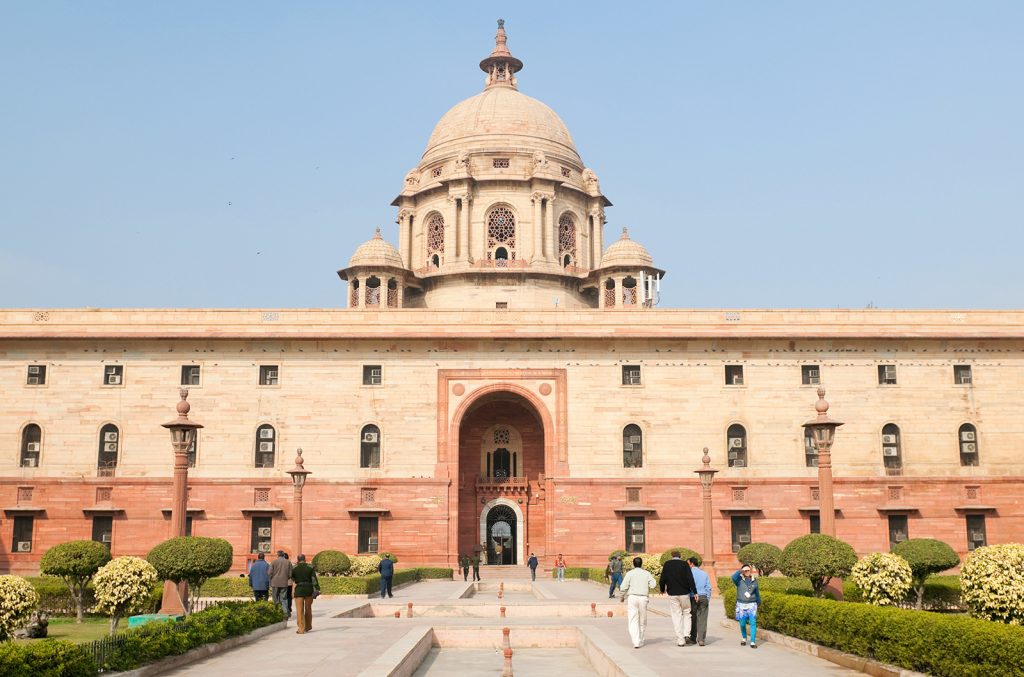The Government of India (GoI) has recently announced it will take steps to weed out inefficient and corrupt officials from its ranks. Ministries have been directed to prepare the list of such officials, within the age group of 50-55 years, and recommend action. Obviously the Dept of Personnel & Training (DoPT) will be expected to pursue this vigorously and work wonders in cleaning up one of the world’s most dishonest and inefficient government set up.
It is not as if this is the first time ever that the GoI has come up with such a fancy idea. The blazing headlines that such acrobatics attract are, no doubt, of great importance to polish the sheen of the government whenever it is perceived as waning. The government is empowered to review performance of bureaucrats who have reached the age of 50 years or have completed 30 years in service. When the government finds that some of these officials are hampering public interest, the DoPT can invoke the Fundamental Rules 56(j), Rule 48 of Central Civil Services (Pension) Rules 1972 and Rule 16(3)(Amended) of All India Services (Death cum Retirement Benefits) Rules, 1958 to remove the so called erring bureaucrats. These rules have already been used when the Modi 2.0 government compulsorily retired 12 senior Indian Revenue Service (IRS) officers. This was followed by the sacking of 22 officers of the Central Board of Indirect Taxes and Customs (CBIC).
All these drives against corruption have to be seen in the background of the existing machineries that are tasked to keep the system clean. For example, the Comptroller and Auditor General (CAG) is one such setup that is to report on functioning of the different ministries. When the man adorning the top post in such an organization is himself or herself under a cloud, then expecting truth from reports produced under his supervision becomes suspect. The CAG under Vinod Rai is a great example. His reports on the 2G spectrum allocation and Coalblock allocations that took place between 2004-2009 were not only being regularly leaked to the media before they were officially presented in Parliament but also all these reports fell flat in the various Courts of law later. Along with the 2G and Coalgate scam, there were also the Commonwealth Games scam, KG Basin and Adarsh Housing scams, which could not withstand the litmus tests. These events of the past decade highlight the fact that the government does not possess a single outfit which in itself can be considered honest and efficient. It is not only the CAG that has been caught with its pants down in the past but even today the rumblings within that organisation against the recently appointed head may keep many guessing as to the purpose behind the move of placing a Gujarat cadre officer in that chair by the present government. Maybe this act will reintroduce complete secrecy whereby no findings of misdeeds will ever see the light of day. In a manner, this posting might be a brilliant step to cover-up any wrong-doings of this government unlike what Vinod Rai did to the UPA government. Notably, Vinod Rai, after his retirement, was rewarded handsomely by the Modi government with a plump posting, as was Ranjan Gogoi and many others. The atmosphere has become so very murky that even the Central Vigilance Commission (CVC) or the Supreme Court (SC) fail to instill confidence and faith on their functioning.
The trouble in the bureaucracy is primarily twin headed. There are plenty of Babus who are efficient and invariably corrupt. There is also another bunch of Babus who are very honest but extremely incompetent. It is seen that most political bosses prefer to keep the former type close to their office. Every Chief Minister or Prime Minister is known to prefer bureaucrats who can deliver. In their quest for delivering what they have promised the voters, they fall directly and most willingly into the trap of these corrupt and efficient officials. In the Indian democratic system, every political party and leader desires to amass great wealth not only to fund elections but also to sustain political existence. This prompts the elected representatives to seek support of officers who can help garner wealth without getting caught. No money or benefits can be collected without the help of bureaucrats. Therefore, attacking the problem of corruption at the government level should ideally start with removing the opaque system of funding of political parties that exist in India.
Apart from the corrupt politician in league with favored bureaucrats, there are also wheels within wheels of the bureaucracy itself. Many publications have claimed that for every Rs 100 collected by corrupt officials, only Rs 10 entered the political system. That implies 90 per cent of the wealth generated by dishonesty in the governance system went to the pockets of government executives. When the government expects ministries to shortlist corrupt and inefficient bureaucrats within its fold, the obvious question that arises is who will prepare the list. Senior bureaucrats will certainly be entrusted with this responsibility. They will, most likely, wish to remove those few honest officers who could be creating impediments in the big ticket corruptions that the secretaries might wish to do for endearing themselves to political bosses at the fag end of their careers. If they can please, they can expect a new lease of life to continue with their dishonest practices. To expect honesty and efficiency only at the senior levels is also wrong. Young officers learn the ropes of their trade very early in their careers. Young or old, inefficiency and dishonesty are human characteristic traits. The Anna Hazare type show of honesty has brought great grief to this nation. Getting rid of a few inconvenient officials might be the hidden agenda of this play for honesty but that will never remove corruption or inefficiency within the Indian government system.
